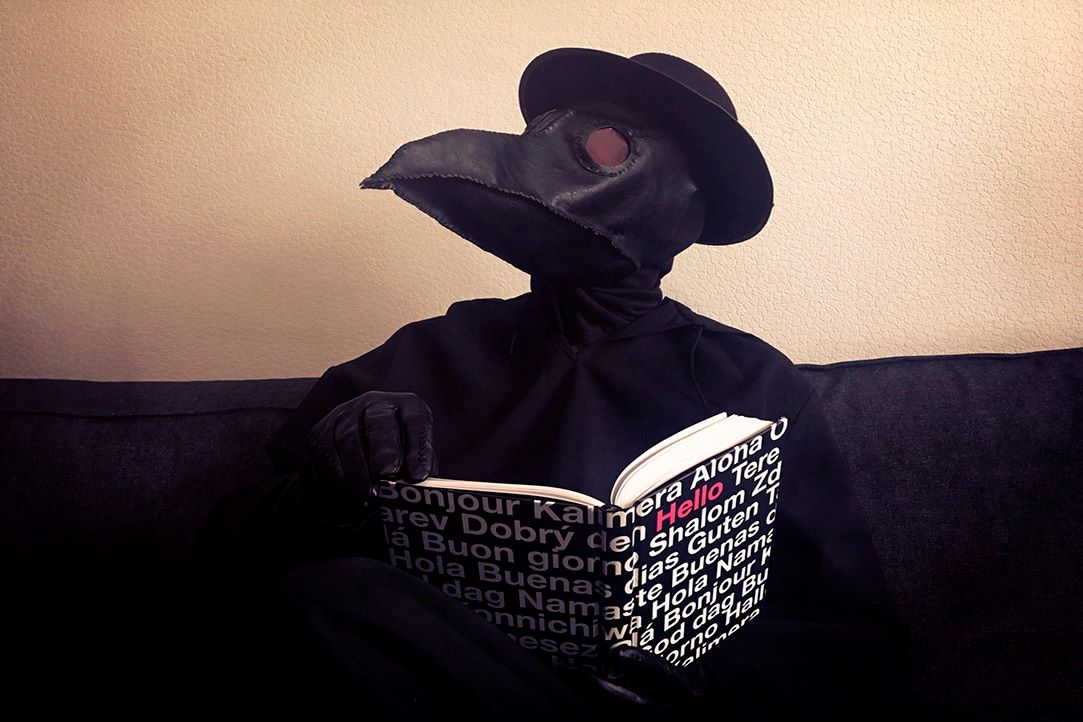Bibliotherapy: 5 Books To Read While Stayin Home

... man is by nature a political animal”, said Aristotle in his Politics.
The idea behind this statement is not about the natural origin of a state only, but also about human’s predetermination of living in a society of other people. The most primitive component of society is family and Aristotle gives a plain definition of it when he says, “The family is the association established by nature for the supply of men's everyday wants…”
From these two passages, we clearly understand the intentions of the ancient scholar to prove the natural sociality of human beings and their dependence on communication, assistance, and cooperation for a good life.
It feels like these days we cannot doubt Aristotle’s genius. Now, when we have to self-isolate ourselves and keep a social distance; when we need to stay in our houses and spend everlasting days there; when we are so deprived of social contacts and miss simple things like walks, meetings, or coffee in a favorite café - we realize how much we depend on other people.
However, this page is not an example of a philosophical reflection on the actual condition of the world, so we will not go deep into this framework. Rather, in order not to go nuts during quarantine, we will go psychological way and try to ease our imprisonment or make it a little more entertaining. So, let us introduce to you bibliotherapy.
The family is the association established by nature for the supply of men's everyday wants… .
What is it?
Bibliotherapy is a psychological method of correction one’s emotional state, which supports proper mental health by reading selected literature and discussing it if the therapy is collective.
How does it work?
The healing effect of bibliotherapy consists of helping people better understand the experienced circumstances that are new to them and find possible solutions for the issues. Bibliotherapy allows making up for the missing ideas and suggestions by getting the required information from the books’ images, characters, and stories.
The night is darkest just before the dawn. And I promise you, the dawn is coming” (Harvey Dent "The Dark Knight" )
Why will it work now?
In the current unprecedented situation, many of us face tough unknown challenges and do not feel right about them or do not have a clue how to deal with these problems. That is why reading related books can serve as a bridge from apathy, depression, procrastination to confidence, efficiency, and stability.
Well, what kind of new experience we meet during quarantine? What follows from above is social deprivation. In other words, it is a lack of connection between a person and society that shows up in different ways: a reduced set of possible communicators, absence of some accustomed activities, and transfer of most interactions to online with succeeding lack of physical contacts. Our everyday routine changed dramatically, as we cannot live the normal lives that we used to, that is why we feel stressed. Since nobody knows when things will get better and the only annoying advice we get is to #stayhome, the level of anxiety grows day by day. Add some economic issues and get total madness or major depression.
Even though such conditions are new to us, the long history of humanity might have examples when people had to deal with similar stuff. The stories, real or fictional they are, can give us needed suggestions on how not to lose our minds and overcome the trouble-time sadness. Therefore, we offer a shortlist of literature, which will help you survive. Bur firstly, we would like to thank Ivan Netkachev, a graduate of HSE bachelor program in philology, who offered some books and wrote brief reviews for them.
- Robinson Crusoe by Daniel Defoe probably, the most famous book about loneliness and getting over it. A classic example of a story about surviving on a desert island and self-reflection during isolation, which gave birth to a literary genre called Robinsonade.
- Steppenwolf by Hermann Hesse is a novel about a loner intellectual Harry Haller. Living in Germany in between two wars, he realizes that all the well-being is imaginary and insecure. Harry appears as a prophet and tries to preach, but nobody hears him. The book is not about loneliness only, but about hysterics and despair also, as Haller absorbs all the vices and sins of his time, but cannot find a way out of them. Or?...
- The Words by Jean-Paul Sartre is an autobiography about Sartre’s formation as a writer. Once he is left alone with bookshelves, he finds a way to communicate to others without the necessity of their direct presence, because a face of an author appears out of words of a book and breaks his solitude.
- Night Roads by Gaito Gazdanov is much of autobiographical. Gazdanov, like the narrator, spent several years working as a taxi driver in Paris. Here, we learn about the loneliness of an intellectual, who is forced to live within the lower classes of French society. Moreover, we learn about the author’s solitude. It feels like the inner existence makes the characters of Gazdanov so self-contained that the external world loses its’ importance.
- Yes to Life In Spite of Everything by Viktor Frankl represents a professional approach to the problem of imprisonment and related mental states: apathy, aversion to surrounding, despair, etc. The book is autobiographical, as Frankl describes the reality of Nazi concentration camps and personal feelings about his life there. Most notably, in this book, you can learn about Frankl’s theory that helped him survive.
We hope you will enjoy your reading and find it helpful. Be safe and take care of your loved ones. As Harvey Dent in The Dark Knight said, “The night is darkest just before the dawn. And I promise you, the dawn is coming”.
Text by
Georgy Kolysh
